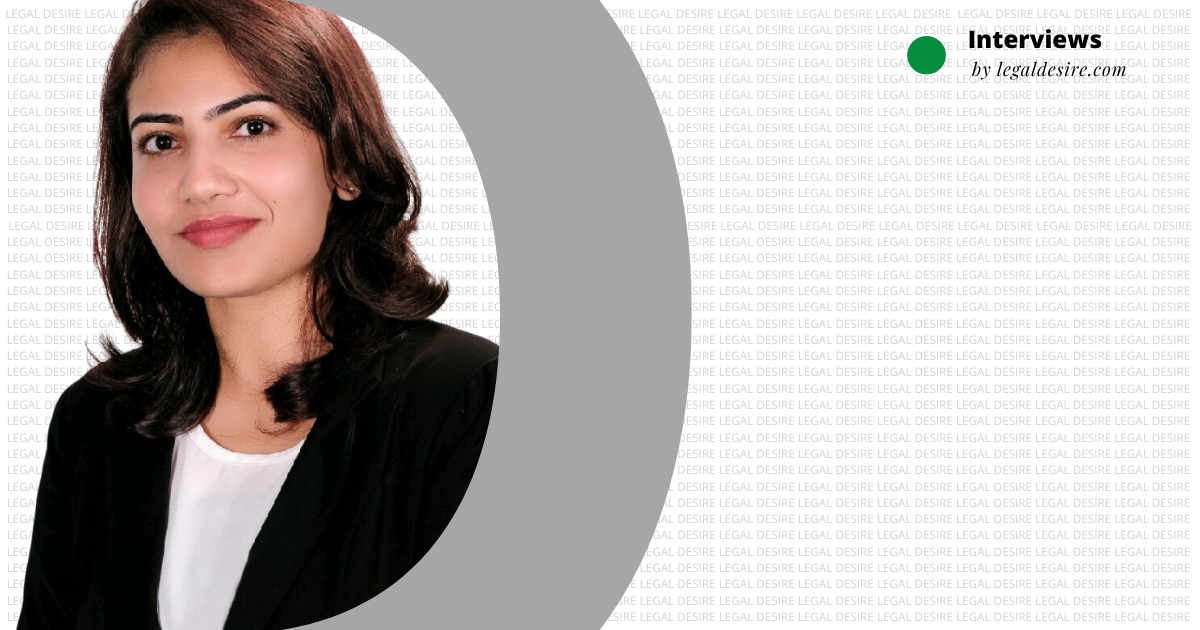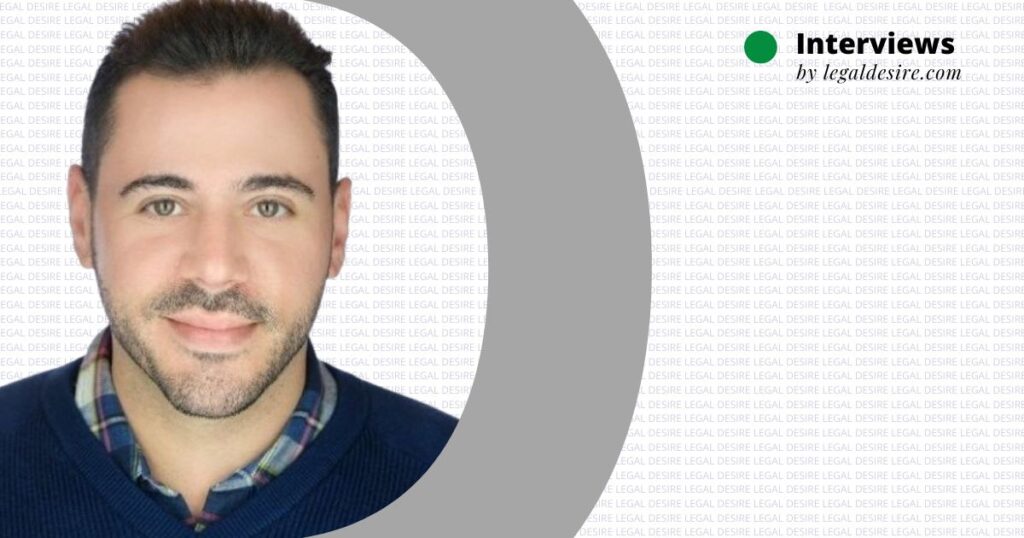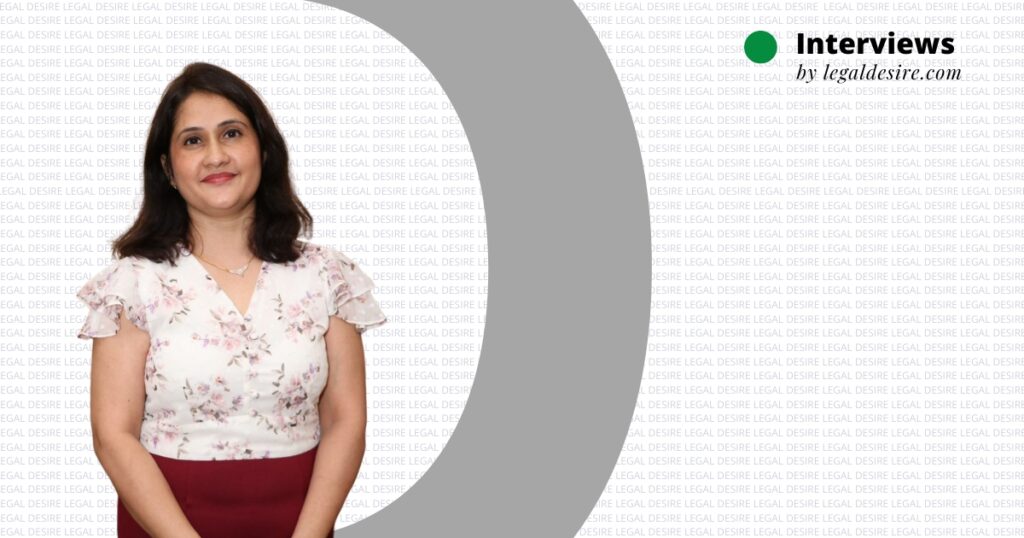Now Reading: In Conversation with Pooja Unnikrishnan, Corporate Lawyer, Dubai
-
01
In Conversation with Pooja Unnikrishnan, Corporate Lawyer, Dubai

In Conversation with Pooja Unnikrishnan, Corporate Lawyer, Dubai
Ms. Pooja Unnikrishnan is currently working as a Corporate Paralegal at Meydan Free Zone in Dubai, UAE. Apart from being a law and business enthusiast, she takes joy in reading political philosophy and literature. Ms. Unnikrishnan had a conversation with Apoorva Mehta, Executive Manager at Legal Desire about her journey to becoming a lawyer in Dubai.
- How was your law school journey in India?
My law school journey has been nothing short of an enjoyable experience, both in terms of learning the subject of law and growing from a teenager to a young adult. The most exciting part of my law school experience was the internship opportunities that I got in different cities. I have completed internships with law firms in Bangalore, Chennai, Kerala and Dubai. The not so exciting part was obviously the never-ending lectures; however, my professors always made it interactive through debates and lively discussions. Not to mention, the moot court preparations, library escapades and chai breaks were a highlight. Studying honours in both business administration and international law was a deadly combination that equipped me with a mix of skills that the corporate sector demands these days. Law school, in my opinion, really does shape one’s mind to think in a critical way. To ask questions, to compete with the best, to meet some of the best professionals in the industry and so much more. My bonus tip: be a reader, dreamer and network as much as possible during this time.
- How different were the learnings from your school and educational environment in the UAE?
I grew up studying the Indian syllabus in the UAE and the educational environment was something that I was familiar with. However, the law school experience in India is mostly challenging as opposed to the ease that is found in the educational system in the UAE which did impact my lifestyle, largely, the cultural values that the Indian education system imparts. In short, it is more like Sophistication meets culture. Adapting to cultural differences has been the biggest challenge because Dubai is a place where there there is a lot of ease even during education in the early years. There was a lot of unlearning and learning process to find the best balance.
- Did you always want to come back to the gulf/ Middle East to settle or work?
Growing up in the UAE, I was aware of the rewards of the job market. I graduated during the peak of Covid lockdown and at the time, hope was the only thing that we had with the hiring patterns. Luckily, there were also many businesses starting up at that point, mainly, tech companies which personally helped me accelerate my career growth. I got one of the best opportunities to work remotely for a US based legal tech startup company during my law school. That being said, I was certain about returning to the UAE soon after graduation. However, I had my doubts on entering the market here as the hiring in UAE is predominantly based on reference based on merit. Being a fresh law graduate from India and entering the UAE market was a leap of faith. Internships have helped a me a lot where it went from me approaching employers that align with my professional values to head-hunters approaching me. The best way to look at this is turning fear and hardship to a challenge that will be a comfort zone exit and entry into a corporate world full of opportunities.
- Which opportunity do you think was a breakthrough for your career?
My first job as a junior legal consultant with a corporate service provider in one of the thriving business hubs in Dubai was a career breakthrough for me. Sometimes, all you need is one chance. At this point, and even now, learning and improving my skills is a top priority for me. Curiosity has led me to so many unknown paths and in all honesty, all my mentors who helped me get this far has always asked me to never stop asking questions. Having the courage to speak your mind, and asking questions, like they say there are no stupid questions. Employers hire you for Fresh pair of eyes, Young hires are expected to have the courage to take initiative and have the imaginative ideas.
- In your opinion, how important international relations and foreign policy of every country becomes?
International relations and foreign policies are pivotal to the achieve the objective of a flourishing global business environment as well as disputes that may arise while doing such businesses. In the UAE, foreign relations are greatly welcomed and fostered through the increasing bilateral treaties and the foreign investments into the UAE from across the globe. The most recent treaty between the UAE and India has been the UAE India Comprehensive Economic Partnership Agreement. This has increased market access, greater access for UAE exports by the reduction of tariffs to name a few. Recently, UAE and India has also signed a MOU for promoting local currencies in cross-border trade. These are all advantages of an effective international relations between two thriving economies.
- What kind of role do they play when arbitrating commercially?
The UAE Courts are very conducive to the principles entailed under the UN Convention on the Recognition and Enforcement of Foreign Arbitral Awards 1958 (New York Convention) and the UAE Arbitration Law is largely based on UNCITRAL Model of Arbitration Law. Due to the adoption of the international principles of law and incorporating it in the legislative framework of the UAE, parties have started to opt for arbitration not for specific matters such as real estate in the UAE but matters in many other sectors.
- What will be your advice to aspiring lawyers wanting to get into or start in the corporate and commercial side of the law?
My advice would be to do as many internships as possible in the corporate sector, initially when you start off, you can always learn other life skills such as marketing, branding, communication, collaboration. While law school hones one’s knowledge about the subject of law, real time experiences in the corporate sector would prepare you to face the challenges of the corporate world. From my experience, if you can communicate effectively, you are already succeeding in your career. My corporate mantra would be communication and collaboration.
- What will be your advice for Indian lawyers wanting to work in UAE?
Like I mentioned, a good number of internships where you have undertaken research projects as well as drafting of commercial contracts would give you an edge in the job sector in the UAE. If you have at least one international experience, whether a certificate, degree or internship, it is even better during the job application process. Continue networking and streamline your applications. Do not overcommit and be honest about your skills and what your vision are. Since UAE is a growing economy and every day is presented with a lot of new challenges, it becomes important to be equipped with real life skills to tackle them.
- Does an Indian law degree suffice for the same, or any extra degree is needed?
Indian law degree is sufficient for legal advisory roles in the UAE. After a couple of years of practice in the UAE, one may get registered with the legal affairs department and obtain a legal consultant id. However, foreign lawyers cannot go to the UAE Courts. So, if you are looking to practice litigation, UAE may not be the best option for you.
- What kind of co-curricular activities are vital for law students to not miss during graduation?
Actively engaging in moot courts, paper presentations and other extracurricular activities are important to develop personal skills. Explore and find out what interests you the most.
- If not for the law, what did you see yourself pursuing?
If not for law, I saw myself as an author or a life coach, enhancing the quality of small communities. This is one of my dreams and I believe dreams should not remain dreams. If your belief system is strong, nothing can stop you from pursuing your dreams. Dream so big that it scares you a little every now and then.










